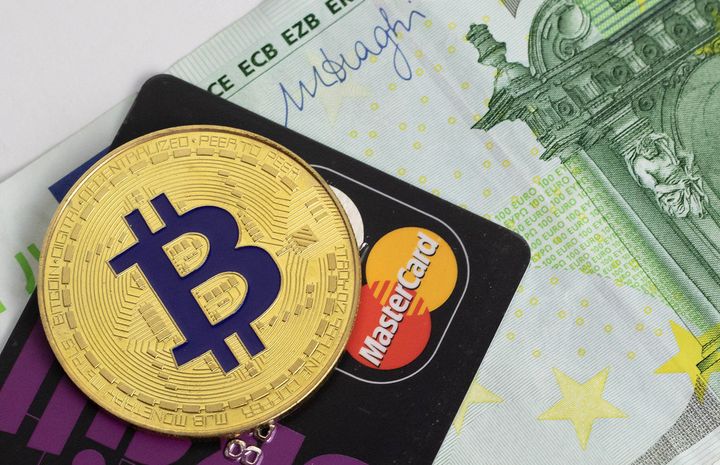Coinbase's CEO claims the SEC requested the company suspend all trading activities other than bitcoin

Last month, the Securities and Exchange Commission (SEC) filed a significant legal challenge against Coinbase, the biggest cryptocurrency exchange in the US. The Securities and Exchange Commission (SEC) filed a lawsuit against Coinbase, alleging that it operated as an unregistered securities exchange and broker and made billions of dollars by facilitating trades of digital assets regarded as securities by federal law.
However, the SEC's lawsuit was not the regulator's first attempt to crack down on the cryptocurrency industry, according to Brian Armstrong, CEO of Coinbase. Armstrong disclosed that, before bringing the lawsuit, the SEC had requested that Coinbase cease trading in all cryptocurrencies other than bitcoin in an interview with the Financial Times.
How did the SEC arrive at this judgment?
Armstrong claimed to have questioned the SEC about how it concluded that all digital assets other than Bitcoin are securities. According to him, the regulator told him to remove all other tokens from Coinbase's platform without explaining why.
The SEC's position that most cryptocurrencies are securities—and as a result, are subject to the same laws and rules as conventional stocks and bonds—led to this request. Despite opposition from the cryptocurrency industry and some lawmakers, Gary Gensler, the chair of the SEC, has repeatedly reaffirmed this stance in speeches and hearings before Congress.
The 1946 Supreme Court decision SEC v. W.J. Howey Co., which established a four-part test to determine whether an investment contract is a security, is the basis for the SEC's definition of security. The test inquires whether funds have been invested in a group venture with the hope of reaping the rewards from the labour of others.
According to the SEC, most cryptocurrencies meet these requirements because they are offered to buyers who anticipate making money off the efforts of the tokens' creators and promoters. According to the SEC, several cryptocurrency projects are centralized and controlled by one person or a small group of people, leaving them open to fraud and manipulation.
On the other hand, the cryptocurrency industry rejects this strategy, claiming that cryptocurrencies are a novel class of digital assets that needs special rules and guidelines. They maintain that cryptocurrency is decentralized and controlled by algorithms and consensus mechanisms rather than by humans. They also point out that many cryptocurrencies are more than just a store of value or a medium of exchange. They have utility and functionality.
What would have happened if the SEC's request had been complied with?
According to Armstrong, granting the SEC's request would have "put the US crypto industry to rest." He claimed that to prevent the innovation and expansion of the cryptocurrency industry in America, Coinbase had no choice but to file a lawsuit.
Currently, 261 tokens, including well-known ones like Ethereum, Litecoin, Cardano, Dogecoin, and Polkadot, are listed on Coinbase's website as "tradeable" assets. These tokens are used in various use cases and applications, including social media, gaming, decentralized finance, smart contracts, and non-fungible tokens.
According to CoinMarketCap, more than 13,000 cryptocurrencies have a market capitalization of more than $2 trillion. These tokens are frequently traded on exchanges besides Coinbase, including Binance, Kraken, Uniswap, and others. Nevertheless, Coinbase, which boasts over 68 million verified users and over $223 billion in assets on its platform, is widely regarded as the US's most popular and reliable crypto exchange.
Millions of Americans would not have been able to access or participate in the crypto economy if Coinbase had complied with the SEC's request. It would also benefit foreign rivals who run their businesses in more crypto-friendly legal systems. Additionally, it would have prevented the creation of fresh cryptocurrency projects that depend on community support and crowdsourcing.
What is the lawsuit's current status?
There is still no clear resolution for the ongoing legal dispute between Coinbase and the SEC. Depending on how the case proceeds through the legal system, it may take months or even years to reach a final decision. The result might significantly impact the development of the cryptocurrency market in the US and elsewhere.
The SEC has taken action against other cryptocurrency businesses and people and sued Coinbase for allegedly breaking securities laws. For instance, it has filed lawsuits against Kik Interactive for selling Kin tokens without registration, Ripple Labs for selling XRP tokens without registering them as securities, Telegram for conducting an unregistered token sale, and several celebrities for endorsing ICOs without disclosing their financial relationships.
However, rather than definitive decisions on whether or not cryptocurrencies are securities, some of these cases have ended in settlements or dismissals. For instance, Kik agreed to pay a $5 million fine to the SEC, Telegram agreed to return $1.2 billion to investors, and several celebrities agreed to pay the SEC various fines and disgorgements.
The cryptocurrency sector and its supporters have also pushed for the SEC and other regulators to provide more clarification and direction on adhering to the existing rules and laws. Additionally, they have been advocating for new legislation to improve the regulatory climate for the development and uptake of cryptocurrencies.
Some lawmakers have supported the cryptocurrency sector's potential to generate jobs, wealth, and positive social impact. Sen. Cynthia Lummis (R-WY) has proposed a bill, for instance, that would give cryptocurrency startups a safe harbour so they could launch their tokens without being subject to securities laws for three years. Senator Pat Toomey of Pennsylvania (R) has urged the SEC to be more specific about regulating cryptocurrencies. Representative Tom Emmer (R-MN) has also put forth several bills to shield cryptocurrency users and businesses from onerous regulations, taxes, and enforcement.
The SEC's lawsuit against Coinbase is a significant one that may determine how the US cryptocurrency market develops in the future. Whether or not cryptocurrencies should be regulated as securities depends on the outcome of the case. Before filing the lawsuit, the SEC requested that Coinbase stop trading in all cryptocurrencies besides bitcoin. This request demonstrates how serious the regulator is about establishing control over the cryptocurrency market. Brian Armstrong, CEO of Coinbase, has declined to comply with the request, claiming that doing so would have signalled "the end of the crypto industry in the US." There is still no clear conclusion to the case, which is still pending. The result might significantly impact the development and expansion of the crypto industry in America and elsewhere.



